
So to Speak: The Free Speech Podcast
Foundation for Individual Rights in Education
The Free Speech Podcast
- 1 hour 7 minutesEp. 234: The Chicago Canon
The University of Chicago is known for its commitment to free speech and academic freedom. Why are these values important to the university? Where do they originate? And how do they help administrators navigate conflicts and controversies?
Tony Banout and Tom Ginsburg direct the University of Chicago’s Forum for Free Inquiry and Expression, which received a $100 million gift last year. They are also editors of “The Chicago Canon on Free Inquiry and Expression,” a new book that collects foundational texts that inform the university’s free speech tradition.
Enjoy listening to our podcast? Donate to FIRE today and get exclusive content like member webinars, special episodes, and more. If you became a FIRE Member through a donation to FIRE at thefire.org and would like access to Substack’s paid subscriber podcast feed, please email [email protected].
Timestamps:
00:00 Intro
03:31 Origin of book
07:14 UChicago’s founding principles
12:41 Free speech in a university context
19:17 2015 UChicago committee report
32:03 1967 Kalven report
38:02 Institutional neutrality
57:41 Applying free speech principles beyond the university
01:04:21 Future steps for the Forum
01:06:35 Outro
Show notes:
- The University of Chicago’s Report of the Committee on Freedom of Expression (2015)
- Chicago Statement: University and Faculty Body Support (last updated 2024)
23 January 2025, 4:47 pm - 1 hour 21 minutesEp. 233: Rethinking free speech with Peter Ives
Is the free speech conversation too simplistic?
Peter Ives thinks so. He is the author of “Rethinking Free Speech,” a new book that seeks to provide a more nuanced analysis of the free speech debate within various domains, from government to campus to social media.
Ives is a professor of political science at the University of Winnipeg. He researches and writes on the politics of “global English," bridging the disciplines of language policy, political theory, and the influential ideas of Antonio Gramsci.
Enjoying our podcast? Donate to FIRE today and get exclusive content like member webinars, special episodes, and more. If you became a FIRE Member through a donation to FIRE at thefire.org and would like access to Substack’s paid subscriber podcast feed, please email [email protected].
Timestamps:
00:00 Intro
02:25 The Harper’s Letter
05:18 Neil Young vs. Joe Rogan
08:15 Free speech culture
09:53 John Stuart Mill
12:53 Alexander Meiklejohn
17:05 Ives’s critique of Jacob Mchangama’s “History of Free Speech” book
17:53 Ives’s definition of free speech
19:38 First Amendment vs. Canadian Charter of Rights
21:25 Hate speech
25:22 Canadian Charter and Canadian universities
34:19 White supremacy and hate speech
40:14 Speech-action distinction
46:04 Free speech absolutism
48:49 Marketplace of ideas
01:05:40 Solutions for better public discourse
01:13:02 Outro
Show notes:
-
“A Letter on Justice and Open Debate” Harper’s Magazine (2020)
-
“On Liberty” John Stuart Mill (1859)
-
“Free Speech: A History from Socrates to Social Media” Jacob Mchangama (2022)
-
Brandenburg v. Ohio (1969)
-
Canadian Criminal Code (1985)
-
“When is speech violence?” The New York Times (2017)
-
Section 230 (Communications Decency Act of 1996)
9 January 2025, 2:38 pm - 1 hour 6 minutesEp. 232: We answer your free speech questions
FIRE staffers take your questions on the TikTok ban, mandatory DEI statements, the Kids Online Safety Act, Trump vs. the media, and more.
Joining us:-
Ari Cohn, lead counsel for tech policy
-
Robert Shibley, special counsel for campus advocacy
-
Will Creeley, legal director
This webinar was open to the public. Future monthly FIRE Member Webinars will not be. Become a paid subscriber today to receive invitations to future live webinars.
If you became a FIRE Member through a donation to FIRE at thefire.org and would like access to Substack’s paid subscriber podcast feed, please email [email protected].
Timestamps:00:00 Intro
00:52 Donate to FIRE!
02:49 TikTok ban
10:01 Ari’s work as tech policy lead counsel
12:03 Mandatory DEI statements at universities
15:19 How does FIRE address forced speech?
18:17 Texas’ age verification law
24:35 Would government social media bans for minors be a First Amendment violation?
33:48 Online age verification
35:17 First Amendment violations while making public comments during city council/school board public meetings
37:25: Edison, New Jersey city council case
39:48 FIRE’s role in educating Americans
41:55 If social media addiction cannot be dealt with like drugs, how can it be dealt with?
43:34 “Pessimists Archive” Substack and moral panics
45:27 Trump and the media
51:23 Gary Gadwa case
52:49 How to distinguish the freedom of speech versus freedom from social consequences?
55:53 Free speech culture is a “mushy concept”
57:58 ABC settlement with Trump
01:01:27 Nico’s upcoming book!
01:02:32 FIRE and K-12 education
01:04:40 Outro
Show notes:“TikTok Inc. and ByteDance LTD. v. Merrick B. Garland, in his official capacity as attorney general of the United States” (D.C. 2024)
“Opinion: The TikTok court case has staggering implications for free speech in America” L.A. Times (2024)
H.B. No. 1181 (Tex. 2023; Texas age-verification law)
“The Anxious Generation” Jonathan Haidt (2024)
S. 1409 - Kids Online Safety Act (2023-2024)
American Amusement MacH. Ass’n v. Kendrick (Ind. 2000)
“Edison Township, New Jersey: Town Council bans props, including the U.S. flag and Constitution, at council meetings” FIRE (2024)
“LAWSUIT: Arizona mom sues city after arrest for criticizing government lawyer’s pay” FIRE (2024)
“Trump v. American Broadcasting Companies, Inc.” (2024)
“New Jersey slaps down censorship with anti-SLAPP legislation” FIRE (2023)
“FIRE defends Idaho conservation officer sued for criticizing wealthy ranch owner’s airstrip permit” FIRE (2023)
“On Liberty” John Stuart Mill (1859)
“Home Depot cashier fired over Facebook comment about Trump shooting” Newsweek (2024)
“Free speech culture, Elon Musk, and Twitter” FIRE (2022)
“Questions ABC News should answer following the $16 million Trump settlement” Columbia Journalism Review (2024)
“Appellants’ opening brief — B.A., et al. v. Tri County Area Schools, et al.” FIRE (2024)
Transcript is here18 December 2024, 8:12 pm -
- 1 hour 7 minutesEp. 231: What is academic freedom? With Keith Whittington
“Who controls what is taught in American universities — professors or politicians?”
Yale Law professor Keith Whittington answers this timely question and more in his new book, “You Can’t Teach That! The Battle over University Classrooms.” He joins the podcast to discuss the history of academic freedom, the difference between intramural and extramural speech, and why there is a “weaponization” of intellectual diversity.
Keith E. Whittington is the David Boies Professor of Law at Yale Law School. Whittington’s teaching and scholarship span American constitutional theory, American political and constitutional history, judicial politics, the presidency, and free speech and the law.
Timestamps:
00:00 Intro
02:00 The genesis of Yale’s Center for Academic Freedom and Free Speech
04:42 The inspiration behind “You Can’t Teach That!”
06:18 The First Amendment and academic freedom
09:29 Extramural speech and the public sphere
17:56 Intramural speech and its complexities
23:13 Florida’s Stop WOKE Act
26:34 Distinctive features of K-12 education
31:13 University of Pennsylvania professor Amy Wax
39:02 University of Kansas professor Phillip Lowcock
43:42 Muhlenberg College professor Maura Finkelstein
47:01 University of Wisconsin La-Crosse professor Joe Gow
54:47 Northwestern professor Arthur Butz
57:52 Inconsistent applications of university policies
01:02:23 Weaponization of “intellectual diversity”
01:05:53 Outro
Show notes:
-
“Speak Freely: Why Universities Must Defend Free Speech” Keith Whittington (2019)
-
“You Can't Teach That!: The Battle Over University Classrooms” Keith Whittington (2023)
-
AAUP Declaration of Principles on Academic Freedom and Tenure (1915)
-
AAUP Statement of Principles on Academic Freedom and Tenure (1940)
-
“Kinsey” (2004)
-
Stop WOKE Act, HB 7. (Fla. 2022)
-
Indiana intellectual diversity law, S.E.A. 354 (Ind. 2022)
-
“Tinker v. Des Moines Independent Community School District” (1969)
12 December 2024, 2:20 pm -
- 1 hour 9 minutesEp. 230: Wilson vs. FDR: Who was worse for free speech?
Woodrow Wilson or Franklin D. Roosevelt: which president was worse for free speech?
In August, FIRE posted a viral X thread, arguing that Woodrow Wilson may be America’s worst-ever president for free speech. Despite the growing recognition of Wilson’s censorship, there was a professor who wrote a recent book on FDR’s free speech record, arguing that FDR was worse.
Representing the Wilson side in our discussion is Christopher Cox, author of the new book, “Woodrow Wilson: The Light Withdrawn.” Cox is a former member of the House of Representatives, where he served for 17 years, including as chair of the Homeland Security Committee. He is currently a senior scholar in residence at the University of California, Irvine.
Representing the FDR side is professor David T. Beito, a Research Fellow at the Independent Institute and Professor Emeritus at the University of Alabama. He is the author of a number of books, his latest being “The New Deal’s War on the Bill of Rights: The Untold Story of FDR's Concentration Camps, Censorship, and Mass Surveillance.”
Timestamps:
00:00 Intro
03:41 Wilson’s free speech record
15:13 Was FDR’s record worse than Wilson’s?
24:01 Japanese internment
29:35 Wilson at the end of his presidency
37:42 FDR and Hugo Black
42:31 The Smith Act
45:42 Did Wilson regret his actions?
50:31 The suffragists
56:19 Did FDR regret his actions?
01:02:04 Outro
Show notes:
25 November 2024, 8:38 pm - 45 minutes 10 secondsEp. 229: Ayaan Hirsi Ali will not submit
Ayaan Hirsi Ali grew up in a culture of conformity. She was beaten and mutilated. She was told who she must marry.
Eventually, she rebelled.
“You don’t speak up at first,” she told us. “First you leave and you find a place of safety. It’s only after that experience that it occurred to me to speak up about anything.”
Hirsi Ali is a human rights activist, a research fellow at the Hoover Institution, the founder of the AHA Foundation, and the host of the Ayaan Hirsi Ali Podcast. She is also the best-selling author of a number of books, including “Infidel,” “Nomad,” “Heretic,” and, “Prey.” Her latest initiative is Courage Media, which describes itself as a space for courageous conversations.
Timestamps:
00:00 Intro
04:36 Conformity and its consequences
09:03 Islam and free speech
16:38 Immigration and the clash of civilizations
26:03 Censorship and decline in higher education
34:14 Cost of criticism and finding one’s voice
37:20 Hope for the future
43:58 Outro
Show notes:
-
“Submission.” Ayaan Hirsi Ali and Theo Van Gogh (2004)
-
Brandeis Change.org petition. (2014)
-
“When you use AI to replace every mention of ‘our democracy’ with ‘our bureaucracy,’ everything starts making a lot more sense.” Bill D’Agnostico via X (2024)
14 November 2024, 5:45 pm -
- 1 hour 10 minutesEp. 228: Does artificial intelligence have free speech rights?
In this live recording of “So to Speak” at the First Amendment Lawyers Association meeting, Samir Jain, Andy Phillips, and Benjamin Wittes discuss the legal questions surrounding free speech and artificial intelligence. Samir Jain is the vice president of policy at the Center for Democracy and Technology. Andy Phillips is the managing partner and co-founder at the law firm Meier Watkins Philips and Pusch. Benjamin Wittes is a senior fellow in governance studies at the Brookings Institution and co-founder and editor-in-chief of Lawfare.
Timestamps:
00:00 Intro
01:54 The nature of AI models
07:43 Liability for AI-generated content
15:44 Copyright and AI training datasets
18:45 Deepfakes and misinformation
26:05 Mandatory disclosure and AI watermarking
29:43 AI as a revolutionary technology
36:55 Early regulation of AI
38:39 Audience Q&A
01:09:29 Outro
Show notes:
-Court cases:
-
Moody v. NetChoice (2023)
-
The New York Times Company v. Microsoft Corporation, et al (2023)
-
Millette v. OpenAI, Inc (2024)
-
Walters v. OpenAI, L.L.C. (2024)
-Legislation:
-
Section 230 (Communications Decency Act of 1996)
-
AB 2655 - Defending democracy from deepfake deception Act of 2024
-Articles:
-
“A machine with First Amendment rights,” Benjamin Wittes, Lawfare (2023)
-
“22 top AI statistics and trends in 2024,” Forbes (2024)
-
“Global risks 2024: Disinformation tops global risks 2024 as environmental threats intensify,” World Economic Forum (2024)
-
“Court lets first AI libel case go forward,” Reason (2024)
-
“CYBERPORN - EXCLUSIVE: A new study shows how pervasive and wild it really is. Can we protect our kids – and free speech?” TIME (1995)
-
“It was smart for an AI,” Lawfare (2023)
1 November 2024, 2:13 pm -
- 1 hour 3 minutesEp. 227: Should there be categories of unprotected speech?
The FIRE team debates the proposition: Should there be any categories of unprotected speech? General Counsel Ronnie London and Chief Counsel Bob Corn-Revere go through each category of speech falling outside First Amendment protection to decide whether it should remain unprotected or if it’s time to “remove an arrow from the government’s quiver.”
Timestamps:
00:00 Intro
17:59 Obscenity
21:20 Child pornography
25:25 Fighting words
32:36 Defamation
41:22 Incitement to imminent lawless action
52:07 True threats
56:30 False advertising and hate speech
01:02:50 Outro
Show notes:
-Court cases:
-
Schenck v. United States (1919)
-
Chaplinsky v. New Hampshire (1942)
-
Roth v. United States (1957)
-
Miller v. California (1973)
-
Counterman v. Colorado (2023)
-
Brandenburg v. Ohio (1969)
-
Virginia v. Barry Elton Black, Richard J. Elliot, and Jonathan O’Mara (2003)
-Legislation:
-
The Comstock Act (1873)
-
The Stolen Valor Act (2005)
22 October 2024, 4:05 pm -
- 1 hour 5 minutesEp. 226: ‘Shouting fire,’ deepfake laws, tenured professors, and mask bans
The FIRE team discusses Tim Walz’s controversial comments on hate speech and “shouting fire in a crowded theater.” We also examine California’s AI deepfake laws, the punishment of tenured professors, and mask bans.
Joining us are:
Aaron Terr, FIRE’s director of Public Advocacy;
Connor Murnane, FIRE’s Campus Advocacy chief of staff; and
Adam Goldstein, FIRE’s vice president of strategic initiatives.
Timestamps:
00:00 Intro
01:51 Tim Walz’s comments on hate speech and “shouting fire”
15:36 California’s AI deepfake laws
32:05 Tenured professors punished for expression
54:27 Nassau County’s mask ban
1:04:39 Outro
Show notes:
Court cases:
Schenck v. United States (1919)
Brandenburg v. Ohio (1969)
National Socialist Party of America v. Village of Skokie (1977)
Texas v. Johnson (1989)
Snyder v. Phelps (2011)
Matal v. Tam (2017)
Virginia v. Black (2003)
NAACP v. Alabama (1958)
Kohls v. Bonta (this suit challenges the constitutionality of AB 2839 and AB 2655) (2024)
G.B. et al. v. Nassau County et al. (this class action lawsuit alleges Nassau County's Mask Transparency Act is unconstitutional and discriminates against people with disabilities) (2024)
Legislation:
Title VI (Civil Rights Act of 1964)
Section 230 (Communications Decency Act of 1996)
Articles/Tweets:
“This is amazing😂” Elon Musk via X (2024)
“BREAKING: The Babylon Bee has obtained this exclusive, official, 100% real Gavin Newsom election ad.” The Babylon Bee via X (2024)
“The 1912 war on fake photos.” Pessimists Archive via Substack (2024)
“Professor fired for porn hobby vows to take university to court.” FIRE (2024)
“Amy Wax is academic freedom's canary in the coal mine.” FIRE (2024)
“In major hit to tenure, Muhlenberg fires pro-Palestinian professor.” FIRE (2024)
“U.S. Department of Education’s Office for Civil Rights announces resolution of antisemitism investigation of Muhlenberg College.” U.S. Department of Education (2024)
10 October 2024, 7:04 pm - 1 hour 12 minutesEp. 225: Debating social media content moderation
Can free speech and content moderation on social media coexist?
Jonathan Rauch and Renee DiResta discuss the complexities of content moderation on social media platforms. They explore how platforms balance free expression with the need to moderate harmful content and the consequences of censorship in a digital world.
Jonathan Rauch is a senior fellow at the Brookings Institution and the author of “The Constitution of Knowledge: A Defense of Truth” and “Kindly Inquisitors: The New Attacks on Free Thought.” Renee DiResta was the technical research manager at the Stanford Internet Observatory and contributed to the Election Integrity Partnership report and the Virality Project. Her new book is “Invisible Rulers: The People Who Turn Lies Into Reality.”
Timestamps:
00:00 Intro
03:14 Content moderation and free speech
12:33 The Election Integrity Partnership
18:43 What activity does the First Amendment not protect?
21:44 Backfire effect of moderation
26:01 The Virality Project
30:54 Misinformation over the past decade
37:33 Did Trump’s Jan 6th speech meet the standard for incitement?
44:12 Double standards of content moderation
01:00:05 Jawboning
01:11:10 Outro
Show notes:
Election Integrity Partnership report (2021)
The Virality Project (2022)
Moody v. NetChoice and NetChoice v. Paxton (2024)
“This Place Rules” (2022)
Murthy v. Missouri (2024)
“Why Scholars Should Stop Studying 'Misinformation',” by Jacob N. Shapiro and Sean Norton (2024)
26 September 2024, 1:53 pm - 1 hour 10 minutesEp. 224: Ayn Rand, Objectivism, and free speech
What happens when philosopher Ayn Rand’s theories meet free speech?
Tara Smith and Onkar Ghate of the Ayn Rand Institute explore Rand’s Objectivist philosophy, its emphasis on reason and individual rights, and how it applies to contemporary free speech issues.
Smith and Onkar are contributors to a new book, “The First Amendment: Essays on the Imperative of Intellectual Freedom.” Listeners may be particularly interested in their argument that John Stuart Mill, widely regarded as a free speech hero, actually opposed individual rights.
Tara Smith is a philosophy professor at the University of Texas at Austin and holds the Anthem Foundation Fellowship in the study of Objectivism. Onkar Ghate is a senior fellow at the Ayn Rand Institute, where he teaches undergraduate and graduate courses on Objectivism.
Timestamps:
00:00 Intro
02:51 What is Objectivism?
06:19 Where do Objectivism and free speech intersect?
09:07 Did Rand censor her rivals?
13:54 Government investigations of communists and Nazis
18:12 Brazilian Supreme Court banning X
20:50 Rand’s USSR upbringing
24:39 Who was in Rand’s “Collective” group?
35:12 What is jawboning?
40:01 The freedom to criticize on social media
46:02 Critiques of John Stuart Mill
59:49 Addressing a critique of FIRE
01:09:01 Outro
Transcript is HERE
Show notes:
-
“Safe Spaces and Trigger Warnings: Free Speech on Campus” (2016)
-
Letters of Ayn Rand (1995)
-
“Goddess of the Market: Ayn Rand and the American Right” (2009)
-
“Brandenburg v. Ohio” (1969)
-
“NRA v. Vullo” (2023)
-
“Murthy v. Missouri” (2024)
-
“Moody v. NetChoice” and “NetChoice v. Paxton” (2024)
12 September 2024, 6:30 pm -
- More Episodes? Get the App
Your feedback is valuable to us. Should you encounter any bugs, glitches, lack of functionality or other problems, please email us on [email protected] or join Moon.FM Telegram Group where you can talk directly to the dev team who are happy to answer any queries.
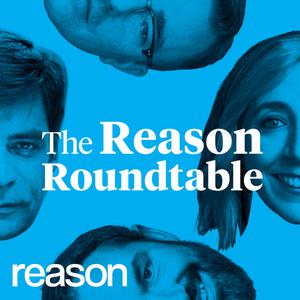 The Reason Roundtable
The Reason Roundtable
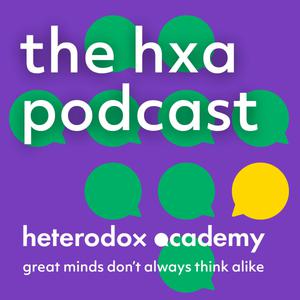 Half Hour of Heterodoxy
Half Hour of Heterodoxy
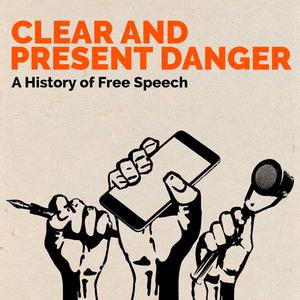 Clear and Present Danger - A history of free speech
Clear and Present Danger - A history of free speech
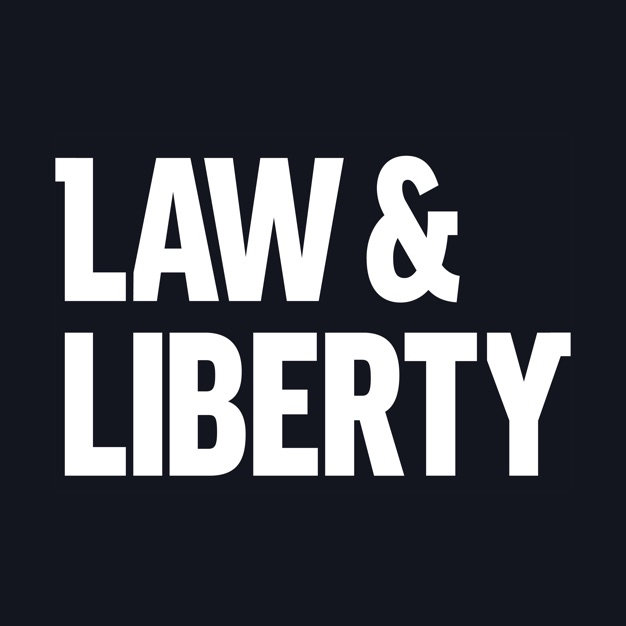 Liberty Law Talk
Liberty Law Talk
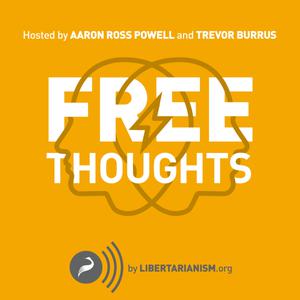 Free Thoughts
Free Thoughts
 Bloggingheads.tv
Bloggingheads.tv